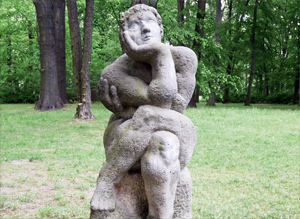What’s this musing about: Washington and slavery. Warning: White guy giving his opinion on something to do with slavery.
George Washington was in many ways a great man. He was beloved by the American people before there even was an “American people.” In multiple instances, he could have easily tried to become “king” of the United States and in my personal opinion, the American experiment probably fails if he were not our victorious general and first president.
However, he owned slaves. He owned a hell of a lot of slaves to put it bluntly. There are very few ways to try and explain this away, although people will often try. The most common to me are: historical relativism and “he was one of the nice ones”. Let’s start with the more ludicrous one!
But he was a pretty benevolent slaveowner! I liken this sentiment akin to being “kinda pregnant.” You either are a slaveholder or not. Just because you (probably) don’t actively rape, and/or assault your slaves like some other Founding Fathers (hey Tommy J!) does not take away the fact that you OWN people.
Historical relativism is a much more nuanced argument. We can’t use our own understanding of our time and apply our judgment to a different era. Washington was one of many links in the slavery chain in the 18th century. He was not an anomaly. Slavery existed for thousands of years so how can we pin guilt on Washington? They didn’t think the way we do now, right?
Except, they did. Or at least they started to. Two of Washington’s closest confidants were anti-slavery: John Laurens and the Marquis Lafayette. Laurens was a virulent anti-slavery advocate and convinced Lafayette of the same. While Laurens died young, Lafayette was a surrogate son to Washington for his entire life. There is even a famous scheme where Lafayette suggested to Washington that they move his slaves to a Caribbean Island and free them. Lafayette felt if Washington was part of this plan, others would surely follow. Washington’s response (or rather non-response) was to compliment Lafayette on his compassion.
Washington himself on numerous occasions opined that slavery would ultimately be a tragic test the United States would sooner or later have to pass. Washington’s own words and final will and testament bear out that he knew right from wrong. And slavery was wrong. That is why he freed all the slaves he owned when he died and was the only Founding Father to do so.
My final word on this is to point out an amazing historical irony. Washington’s grave was moved some years after his death to a much more fitting crypt down the hill from his home on Mount Vernon. On frequent trips, I still find myself moved standing so close to both George and Martha’s final resting place. However, it was recently discovered that if you turn around while staring at Washington’s crypt, you are looking at a slave graveyard. There were no markings for the graves and the caretakers of Mount Vernon has erected an equally moving monument to those buried there. They do not know how many bodies there are. I suppose there is a justice in Washington overlooking a slave graveyard for eternity.
If you read enough history, I think you come to the same conclusion about all characters of history. Even the greatest of men can have the worst kind of flaws.


Leave a Reply
You must be logged in to post a comment.